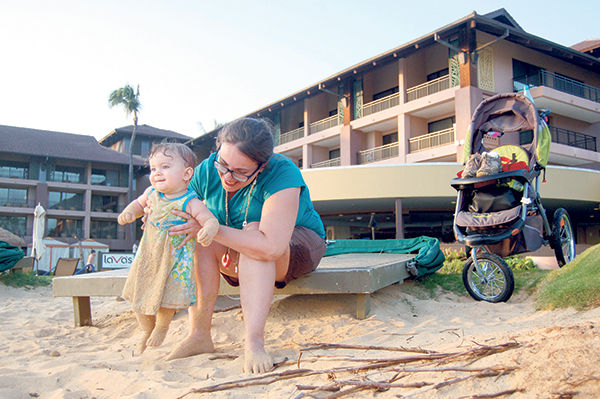LIHUE — Officials from Starwood Hotels and Resort say they intend to convert a portion of the Sheraton Kauai Resort into timeshares as a part of a larger proposal to turn the worldwide corporation’s vacation ownership arm into a separate, publicly-traded company by the end of this year.
“While future plans include transitioning some of the Sheraton Kauai to vacation ownership, the scope and timing of this project have not yet been determined,” Harris Chan, Starwood Hotels and Resorts vice president of Hawaii operations, wrote in an email. “It is business as usual as we work on a master plan of the potential project.”
In addition to the 394-room Poipu resort, Starwood officials say they also plan to transfer at least four other properties in the Mainland and Mexico into the new company, Starwood Vacation Ownership, for future timeshare development.
“Currently, the proposed plan includes keeping the ocean wing as a hotel, while converting the garden wing and undeveloped land adjacent to the property to Starwood Vacation Ownership product,” Chan said. “Overall, this plan will allow us to increase inventory and will help the company achieve the highest growth path.”
Though the preliminary proposal must obtain approvals from federal regulators and Starwood board of directors, some local hotel industry experts say the move has benefits and drawbacks.
Jay Furfaro, who served as a director for the Sheraton Kauai for four years in the early 1980s and 1990s, said plans to turn a portion of the resort into timeshare units have been tossed around before.
“Timeshares, or intervals ownership, as I’d like to refer to it, has been very positive in the sense that, after difficult economic times, we’ve always been able to retain our share of occupancy,” said Furfaro, who returned to his hotel consulting business, Hospitality Concepts, Ltd., in December following a nearly 14-year run on the Kauai County Council. “Ownership means people feel they own an asset, and they want to come back to ensure that their asset is well maintained, so they have repeat value in visitor destination.”
Still, the transition raises a key question at a time when hotel operators are increasingly turning local properties over to timeshares, Furfaro said.
“When they got their zoning to be a hotel, there was a promise of certain economic development benefits and jobs that went along with it, but when they convert to timeshare, certain amenities are not put on the hotel as far as demands anymore,” Furfaro explained. “For example, they don’t have daily maid service. Housekeeping services are required during every day of occupancy, whereas rooms are usually serviced twice a week for timeshares, so there’s a net loss of work opportunity.”
Specific details of the transition are still being worked out, said Chan, who noted that “there will be no changes to our current suite of properties and services as a result of the transaction at this time.”
“The recent announcement regarding Starwood Vacation Ownership will not have any immediate impact on Starwood’s operations in Hawaii,” Chan said.
Apart from the Sheraton Kauai Resort, Starwood Hotels and Resorts operates two other properties on Kauai: The St. Regis Princeville Resort and The Westin Princeville Ocean Resort Villas — the latter of which is an existing timeshare property.
The 10.7-acre Sheraton Kauai Resort was valued at $20.5 million for the 2015 tax year, according to County of Kauai real property assessment records.
The planned timeshare spinoff, Chan said, is expected to be completed by the fourth quarter of this year, if approvals are secured from Starwood’s board of directors and U.S. Securities and Exchange Commission officials.
A specific timeline for the partial timeshare transition at the Sheraton Kauai Resort, however, has not been determined.


